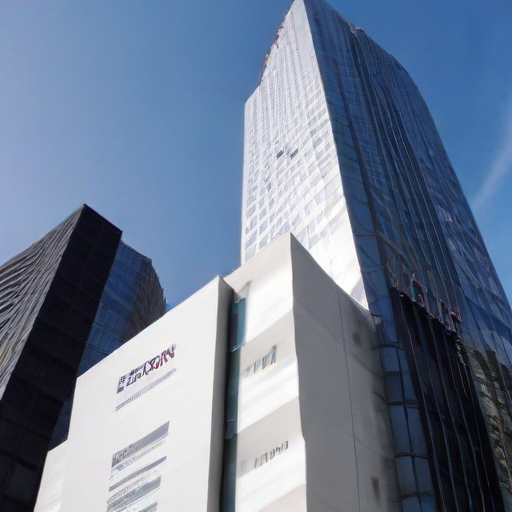Enron, a name synonymous with one of the most infamous financial frauds in history, has resurfaced in an unexpected twist. On the 23rd anniversary of its bankruptcy, the company appears to have made a bold announcement suggesting a revival accompanied by a “new vision.” However, this announcement has raised eyebrows and questions about its legitimacy, as many speculate it may be a satirical venture rather than a genuine corporate comeback.
The newly launched Enron website showcases a collection of motivational visuals, including a ballerina on the beach and scenes of rocket launches, accompanied by a narrative focusing on themes of “rebirth” and embracing change. A notable video concludes with various individuals confidently declaring, “I am Enron.”
In a striking move, the company has also erected a billboard in Houston, the city where Enron once thrived, featuring the message, “We’re back. Can we talk?” However, the fine print in the website’s terms and conditions reveals that this “resurgence” is a parody rather than a legitimate business endeavor, characterizing it as performance art protected under the First Amendment.
Details about the masterminds behind this stunt remain undisclosed, but a spokesperson for the initiative promises more information will follow soon. Their mission statement comprises buzzwords like “permissionless innovation” and tackling the energy crisis, hinting at an intent to engage in meaningful discourse around these topics.
The actual Enron infamously declared bankruptcy on December 2, 2001, following the exposure of extensive accounting fraud, hidden debts, and grossly inflated profits, leaving thousands unemployed and countless investors devastated. Key figures such as former CEO Jeffrey Skilling and CFO Andy Fastow faced criminal charges, with Skilling serving significant prison time before his release in 2018.
The Enron trademark, now owned by The College Company, was acquired in 2020 and is used for selling merchandise including t-shirts. This company is operated by Connor Gaydos, who previously gained notoriety for co-creating the “birds aren’t real” satirical conspiracy theory, further emphasizing the playful and ironic approach of this new project.
Their social media presence echoes the sentiment displayed on the billboard, as their account recently tweeted, “We’re back. Can we talk?” followed by a cautionary note about impersonators and scams, underscoring the tongue-in-cheek nature of their campaign.
While the “return” of Enron might not represent a revival in the traditional sense, it serves as a compelling reminder of how the shadow of past corporate failures can be harnessed for creative expression and social commentary. This endeavor showcases how entities can playfully engage with history while fostering conversations around genuine issues in the energy sector, such as sustainability and innovation.
In a way, this “new” Enron symbolizes a fresh perspective on the importance of transparency and ethical practices in business—something that could encourage more substantial, constructive discussions in the industry moving forward.
